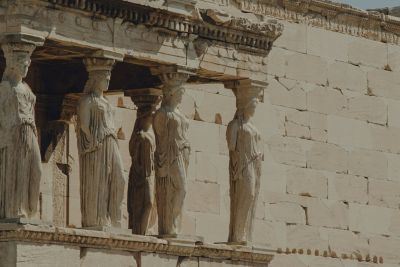
Delving into the depths of the ancient texts, we unravel the timeless complexities of maternal identity and sacrifice in the Greek world.
It is no secret that the world of Antiquity was very different to present day life. The role of mother’s was no exclusion to this. Motherhood in ancient Greek literature was a multifaceted theme, reflecting societal expectations, religious beliefs, and the harsh realities of mortality. From admired maternal figures to tragic tales of maternal despair, the portrayal of mothers offers insight into the complexities of ancient Greek society.
In mythology maternal figures was a prominent theme. Ancient Greek literature is replete with maternal figures, both divine and mortal, whose stories resonate through the ages. One prominent example is Medea, a princess who infamously kills her own children in a vengeful act against her unfaithful husband, Jason. Medea’s complex portrayal challenges traditional notions of maternal devotion and highlights the consequences of betrayal and societal expectations.
While women in ancient Greece had fewer rights and were primarily confined to domestic roles, motherhood was nevertheless respected as a crucial aspect of society. The stability of the family unit was paramount, and women were expected to fulfil their maternal duties diligently, despite the lack of choice in bearing children.

Mothers in ancient Greece faced numerous challenges, including high mortality rates for both mothers and infants. The anxiety surrounding childbirth was pervasive, leading to religious rituals and prayers seeking divine protection. The portrayal of maternal anguish and sacrifice in literature reflects the harsh realities of life in ancient times. Mothers in Literature. The memory of mothers in ancient Greek literature is often tinged with tragedy and sorrow. From the grief-stricken Medea to the lamentations of Trojan war mothers mourning their fallen children, the legacy of maternal love and loss resonates throughout the ages.
The role of mothers in ancient Greece differs significantly from contemporary society, yet parallels can be drawn in the struggles and sacrifices of motherhood. While modern women have more autonomy and rights, the timeless themes of maternal devotion and societal expectations continue to shape the experiences of mothers around the world.
The portrayal of mothers in ancient Greek literature offers a nuanced exploration of maternal roles, challenges, and sacrifices. From revered goddesses to tragic heroines, these stories continue to captivate and resonate with audiences, shedding light on timeless themes of lover, loss, and the enduring bonds of family.
Assistant Professor of Ancient Greek Literature, Emily Kneebone, contributed to this article.



